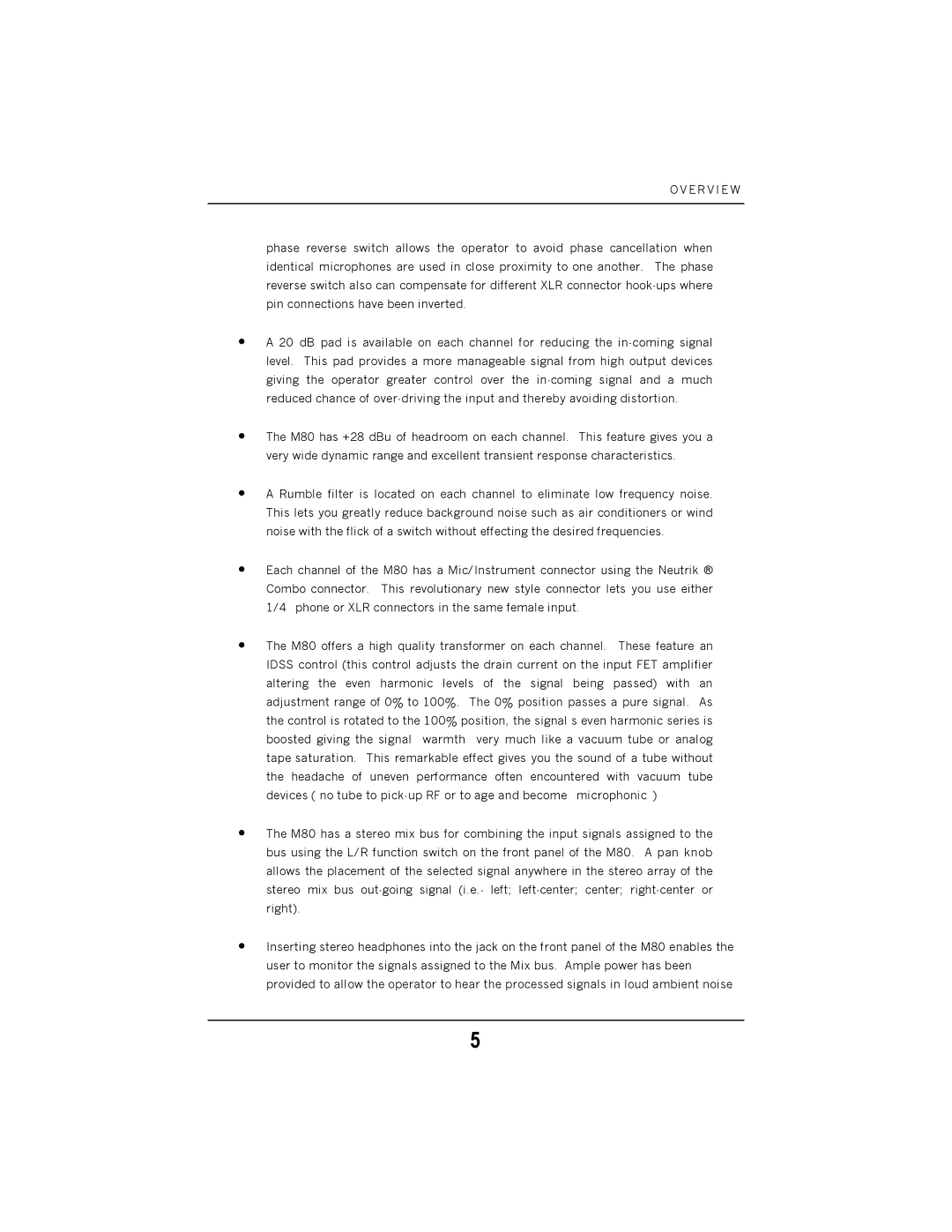M80 specifications
The PreSonus Audio Electronic M80 is a noteworthy piece of audio gear that appeals to both professional studio engineers and home recording enthusiasts alike. Renowned for its exceptional quality and versatility, the M80 stands out in the crowded market of microphone preamps.At its core, the M80 features eight channels of high-end microphone preamplification. Each channel is built around a solid-state design that ensures low noise and a broad frequency response, making it ideal for capturing vocals, instruments, and any sound source with precision and clarity. One of the standout characteristics of the M80 is its ability to deliver crystal-clear audio without introducing unwanted coloration, allowing users to achieve an accurate representation of the source material.
One of the key technological highlights of the M80 is its variable impedance settings. By allowing users to adjust the input impedance, the M80 can be optimized for a variety of microphones, including dynamic, condenser, and ribbon types. This flexibility not only enhances the performance of the microphones but also enables users to tailor the sound to achieve the desired tonal characteristics.
The M80 also features a comprehensive metering system that includes both LED indicators and a built-in level control, giving users precise feedback on their input levels. This ensures that recordings maintain headroom and reduce the risk of clipping, which is crucial in professional environments where every detail matters.
In addition, the M80 incorporates a unique "air" circuit that allows for an enhanced high-frequency response. This feature helps to elevate the clarity and presence of vocals and instruments alike, adding brightness without harshness.
Another important aspect of the M80 is its robust build quality. The chassis is designed for durability, making it suitable for both studio use and mobile recording applications. Its compact form factor allows it to fit seamlessly into any rack setup, while also being lightweight enough for transport.
Overall, the PreSonus Audio Electronic M80 is a powerful and versatile microphone preamp that offers a plethora of features and high-quality audio reproduction. With variable impedance settings, dynamic metering, and an innovative design that emphasizes clarity, it stands as a great choice for anyone looking to elevate their recording capabilities whether at home or in a professional studio setting.

